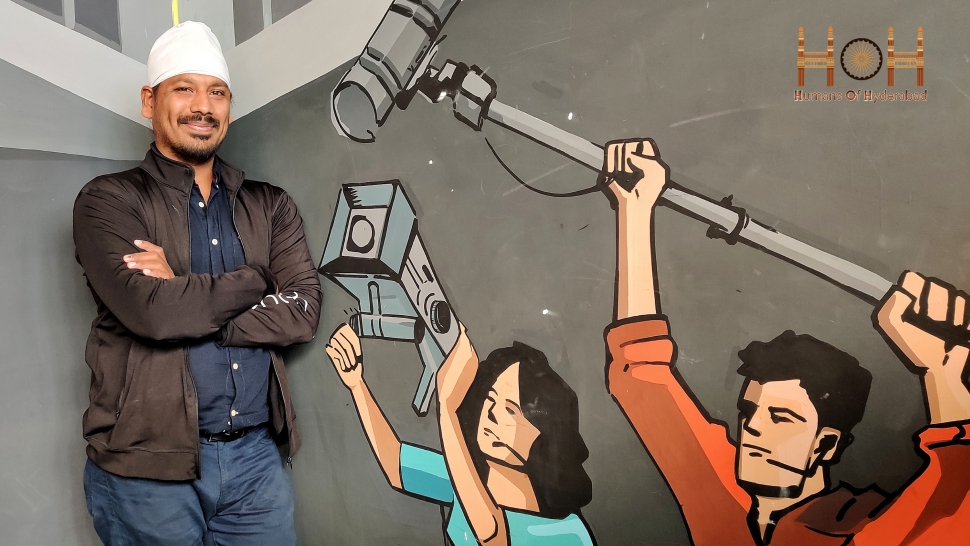“It was in 2010 when I fell in love with film-making. After pursuing dual Post-Graduation in mass communication and business management, I pursued Fundamentals of Film Making in Annapurna International School of Film Making. It all started with a small Nikon camera and the zeal in me to experiment with something different. As part of the mass communication assignment, I was told to shoot few videos and it all started from there. I was addicted to the process of storytelling through visual communication.
Believe me when I say I started my film-making career with a Nokia mobile. The availability of technology was not the same as it is today. The only editing software we had was Windows MovieMaker. Around the same time, Hyderabad started hosting various short film festivals and competitions. I thought I could give it a shot, well it did not go as planned. The short film did not turn out the way I expected it to. Later I started taking part in business plan competitions and with the money, I won I used to invest them into my short films. Back then, we did not have proper audio recorders that could give me the right audio I’d want. For me to overcome the hurdle of the right audio, I started working on silent films. This is when the journey towards filmmaking took a major turn. My first silent film won twenty-one awards and the second film which was based on poverty in India won twenty-five. Even though there were not many resources at the door, I still wanted to be resourceful.
After finishing college in 2012, I had made a film named Lapet for which I won my first international award at the My Hero International Film Festival organised in Los Angeles. That’s certainly one of the memorable awards I have received to date.
Documentary film-making is a challenging job. It is a form of film-making that not only makes you aware of the problem but also gives you the ability to think for solutions. Recalling one such challenging project that I worked on was back in 2013 with the documentary named The Unseen Disaster. It was about biomedical waste in Hyderabad. Being part of numerous sting operations, I learned that there was only one incidental plant that was used to decompose all the medical waste from hospitals across the city. Finding this loophole did not only highlight the issue but also highlighted the solution that, more incidental plants are needed in the city.
Having widened my horizon in film-making, I have worked on music videos and corporate films as well. Working on more than 300 films has allowed me to make my mark in the short film circle. The proudest moment was when I was selected as one of the speakers at TEDx Hyderabad. The feeling that runs through you when you walk down the aisle and all the 3000 people have their eyes on you is heart-warming. I have also received an award from the Government of India for one of my short films called ‘Silencers’ which is based on the practice of child marriage in India. My latest microfilm
Humans Vs Corona has won Best Film International Award Jury in India International Science Festival and I felt elated.
Being a filmmaker is a way of life and I chose to make films that create awareness on different problems in society that are less covered in the mainstream media.”
